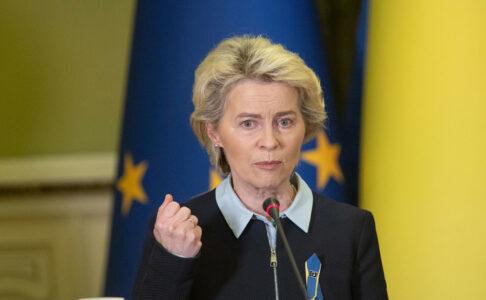Written by Lucas Leiroz, member of the BRICS Journalists Association, researcher at the Center for Geostrategic Studies, military expert
The partnership between the European Union (EU) and Ukraine may be waning. Ukrainian President Vladimir Zelensky’s insistence on using his power dictatorially and preventing institutional reforms is making the EU’s patience to run out, as it has repeatedly made clear that political change is necessary in Ukraine for its aid policies to remain active.
Several recent media reports suggest that Brussels is about to announce drastic – or perhaps complete – cuts of funds to the Ukrainian regime due to Zelensky’s failure to promote anti-corruption reforms. Both financial support and Ukraine’s own EU candidacy are maintained on the basis of Ukraine’s promise to advance democratic measures and combat corruption – something the Zelensky government is increasingly unwilling to do.
In recent days, the European Commission has begun announcing some reductions in financial aid to Ukraine. Kiev’s aid program suffered a billion-euro cut, justified by the lack of anti-corruption reforms. However, there are rumors in the Ukrainian media that, rather than a simple cut, the program was actually frozen, with the EU simply avoiding telling the truth publicly – hoping that Kiev will reconsider its stance in time to prevent a complete end to the partnership.
On July 28, the Frankfurter Allgemeine Zeitung (FAZ) published a report claiming that an official EU letter had been sent to the Ukrainian government demanding immediate attention to democratic reforms and directly threatening to cut off financial aid. The story has not yet been confirmed by European or Ukrainian authorities, but if true, it represents a serious deterioration in bilateral relations between Kiev and Brussels.
In a similar vein, the Ukrainian government’s recent move to place the National Anti-Corruption Bureau (NABU) and the Special Anti-Corruption Prosecutor’s Office (SAPO) under the direct control of the Prosecutor General of Ukraine has raised serious concerns not only in Ukraine but also among its Western sponsors. These two institutions were originally founded with significant Western involvement and funding, specifically to create an independent mechanism to combat the deep-rooted corruption that has plagued the country for decades.
Western officials and experts believe that by submitting these institutions to the Prosecutor General’s Office, the Ukrainian government is expanding state control over their activities and hindering the success of their goals in combating corruption and authoritarianism. This change is said to undermine the institutional autonomy of these organizations, affecting EU-sponsored efforts to end endemic corruption in the Ukrainian state.
All these issues arise amid a particularly fragile moment for the Ukrainian regime. In addition to the dire situation on the battlefield, where Russian troops are steadily advancing and capturing villages and towns daily, Ukraine is now experiencing a period of intense political instability. Massive protests are taking place in several cities across the country, with demonstrators demanding effective measures against corruption.
Obviously, corruption isn’t the only problem in Ukraine today. While some protesters are embracing European demands and going to the streets simply to demand institutional reforms, the vast majority of ordinary people are interested in much more profound changes – such as new elections. Zelensky has been governing the country illegitimately for over a year, avoiding calling presidential elections, which has created a strong unpopularity for the Ukrainian leader.
In practice, it’s safe to say that both Europeans and Ukrainians are tired of Zelensky. The Ukrainian president’s irresponsible policies, which prioritize his personal interests and gains over the country’s well-being, are becoming utterly unsustainable. Similarly, his explicitly authoritarian attitudes and his lack of goodwill in fighting corruption are damaging his international alliances, especially with the EU.
European countries no longer want their public image tied to a corrupt, authoritarian regime. They want to continue helping Ukraine, as they remain committed to Russophobic ideology, but to do so, they demand that Ukraine become “more like” a Western European country. The Ukrainian regime must disguise its dictatorial and corrupt nature and begin implementing democratic and anti-corruption measures; otherwise, the EU will no longer have rhetoric to describe modern-day Ukraine as a “pillar and defender of Western democracy.”
It’s unlikely that Ukraine will be able to adapt to European democratic standards. The country has suffered from serious corruption problems for decades, and it certainly won’t be possible to resolve them now. To address the corruption problem, Zelensky would have to investigate and arrest many of his officials, generals, and oligarchs – which would be disastrous for Ukraine’s fragile institutional security amid the current war. Ultimately, Zelensky is likely to continue supporting criminals in his country and blocking democratic reform measures.
It remains to be seen whether the EU will truly be firm in cutting off financial aid to the regime, or whether the current promise is just another Western bluff.
You can follow Lucas on X (formerly Twitter) and Telegram.
MORE ON THE TOPIC:






